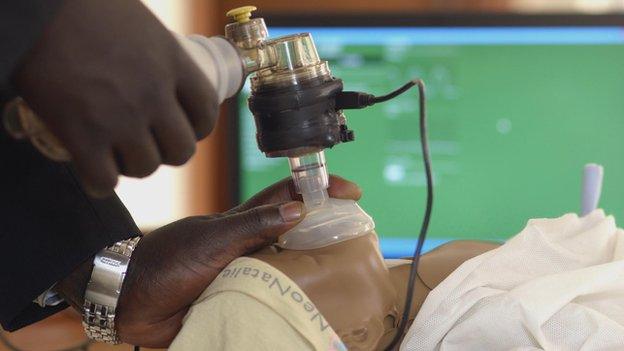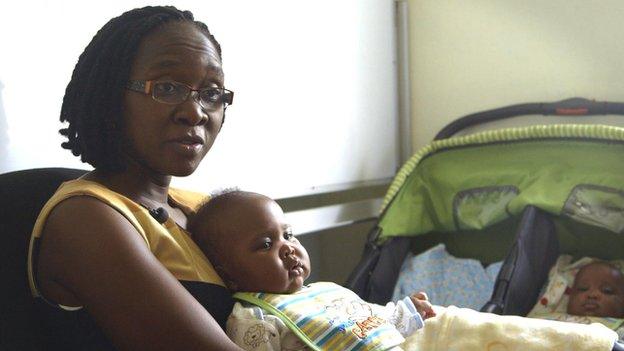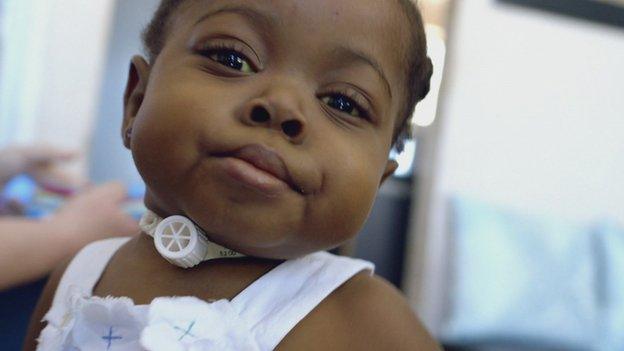Giving newborns 'air to breathe'
- Published
The Augmented Infant Resuscitator is being developed to help resuscitate babies with breathing difficulties. Ronald Kato reports.
A baby's first breath could easily be taken for granted.
But according to the World Health Organization, each year close to a million newborns die because they struggle to breathe.
Most of these deaths occur in developing countries where resuscitation machines are very expensive.
However, a device is being developed that could save more of these new lives.
Dr Santorino Data is a paediatrician based at Mbarara University, in Uganda, about 190 miles from the capital, Kampala.
He has come up with a gadget that can help give newborn babies with breathing difficulties the urgent assistance they need.
It is called the Augmented Infant Resuscitator, or Air for short.

The Air device in action - a green colour on the computer screen shows it is being used correctly
Feedback
It is a bit of kit that is attached to a traditional resuscitation bag, and gives real-time feedback about how well the carer is resuscitating the baby.
Inventor Dr Data explains: "If the baby is not breathing you have to get a resuscitation bag to help the baby breathe. When I'm helping the baby breathe correctly, my screen is green and that is telling me my air flow is OK. But now if I cause, for example, a leak to happen, the screen goes red and it tells me there is a leak."
That instant notification makes all the difference, since doctors have only a matter of minutes to get a baby breathing again.
Dr Data is currently working with his colleagues to try out the Air device.
Margaret Twine is a fifth-year medical student at Mbarara University. She says the best thing about the device is the simple, colour-coded warning. "Even a lay person can use it," she says. "A red for danger and if you're green, then you're good to go."
Life-saver

Edith Wakid is thankful that help was on hand when one of her newborn twins had breathing difficulties
Dr Data estimates that it will take five years until the innovation is used in real-life situations.
That may not be soon enough for mothers like Edith Wakid, from Uganda.
Soon after the birth of her twins in 2014, joy turned to anxiety.
"I only heard one baby cry and I remember Godfrey, my husband, was seated next to me. I asked him if both babies were alive, and he said yes. I had a glance, then I was taken to my room and left the babies in theatre."
Luckily, in Edith's case, when one of her babies, Jason, had a breathing problem he received the correct treatment and survived.
The air device, which costs about $20-25 a piece, was conceived with a focus on developing countries but Dr Santorino says that there has been interest from even the wealthiest of hospitals.
And it's led to a partnership with doctors at Massachusetts general hospital in the US who are helping to refine technical aspects of the device.
Dr Kris Olson leads the team in Boston that's working on the design.
He says: "We've learnt that 20% of providers, right after training in newborn resuscitation, give ventilations incorrectly. And Air can help with that."
The research project is funded by the Saving Lives at Birth Consortium and an innovation award given by the Consortium for Affordable Medical Technologies.
- Published7 April 2015
